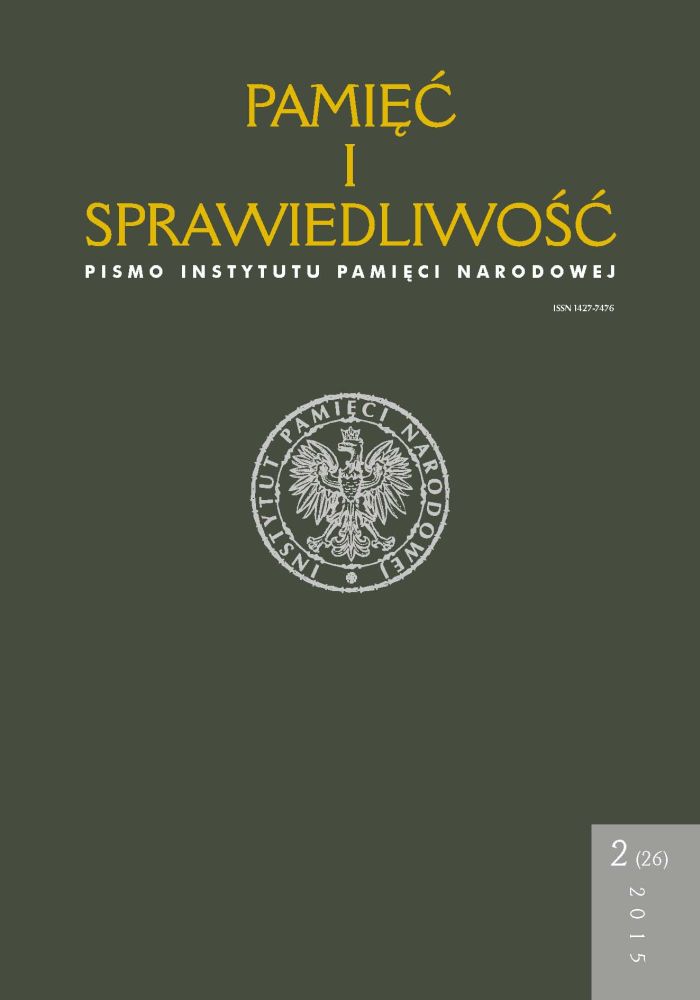Wpływ NSZZ „Solidarność” na funkcjonowanie PZPR w województwie bydgoskim (zarys problemu)
Impact of Independent Self-governing Trade Union “Solidarity” on the functioning of the Polish United Workers’ Party in the Bydgoszcz Voivodship (an outline of the problem)
Author(s): Krzysztof OsińskiSubject(s): Political history, Social history, Post-War period (1950 - 1989)
Published by: Instytut Pamięci Narodowej
Keywords: communism; Polish People’s Republic (PRL); Bydgoszcz; conflict; “Solidarity”; PZPR; horizontal structures of the Party
Summary/Abstract: Until August 1980, the Polish United Workers’ Party had unquestionable power in Poland. The establishment of the trade union “Solidarity” showed an alternative and allowed for a departure from the monopoly this party had on power. On one hand, this situation caused transformations within the Polish United Workers’ Party and the establishment of horizontal structures, beginning a dialogue with the new entity on the social and political scene for show, but at the same time making preparations for a power play in the background. The purpose of this article is to present how mutual relationships between the Polish United Workers’ Party and “Solidarity” in the former Bydgoszcz Voivodship looked. Attempts to break the August 1980 strikes and the introduction to founding committees of new trade unions people from the party who were either to take them over or to bring about their organisational paralysis are described. All of these actions failed because of mass and genuine support for “Solidarity” from society. What is more, PZPR experienced an organisational collapse, which manifested, among others, in a mass departure of members. The situation between both environments was clearly exacerbated as a result of the Bydgoszcz Crisis of March 1981 when “Solidarity” threatened to begin a general strike as a result of police brutality towards their members. The government party reached a settlement with the union party, thereby avoiding the paralysis of the country, but the results of these events paralysed their structures and prevented them from operating effectively for many months. The crisis in the Party was overcome during the 9th extraordinary convention of PZPR, where it was called on to abandon any factional attitudes and, at the same time, to unite around the Party management to effectively oppose a political opponent who was not named directly (in reference to “Solidarity”). As a result, a few months later the preparations for a long term martial law began; preparations that definitively ended the mutual relationships of PZPR and “Solidarity”.
Journal: Pamięć i Sprawiedliwość.
- Issue Year: 27/2016
- Issue No: 1
- Page Range: 168-196
- Page Count: 29
- Language: Polish

